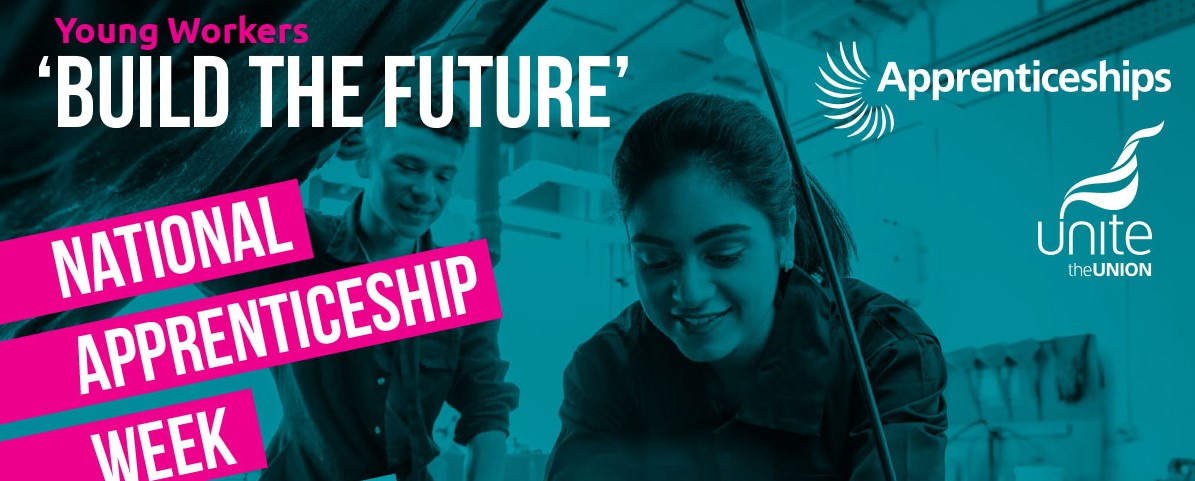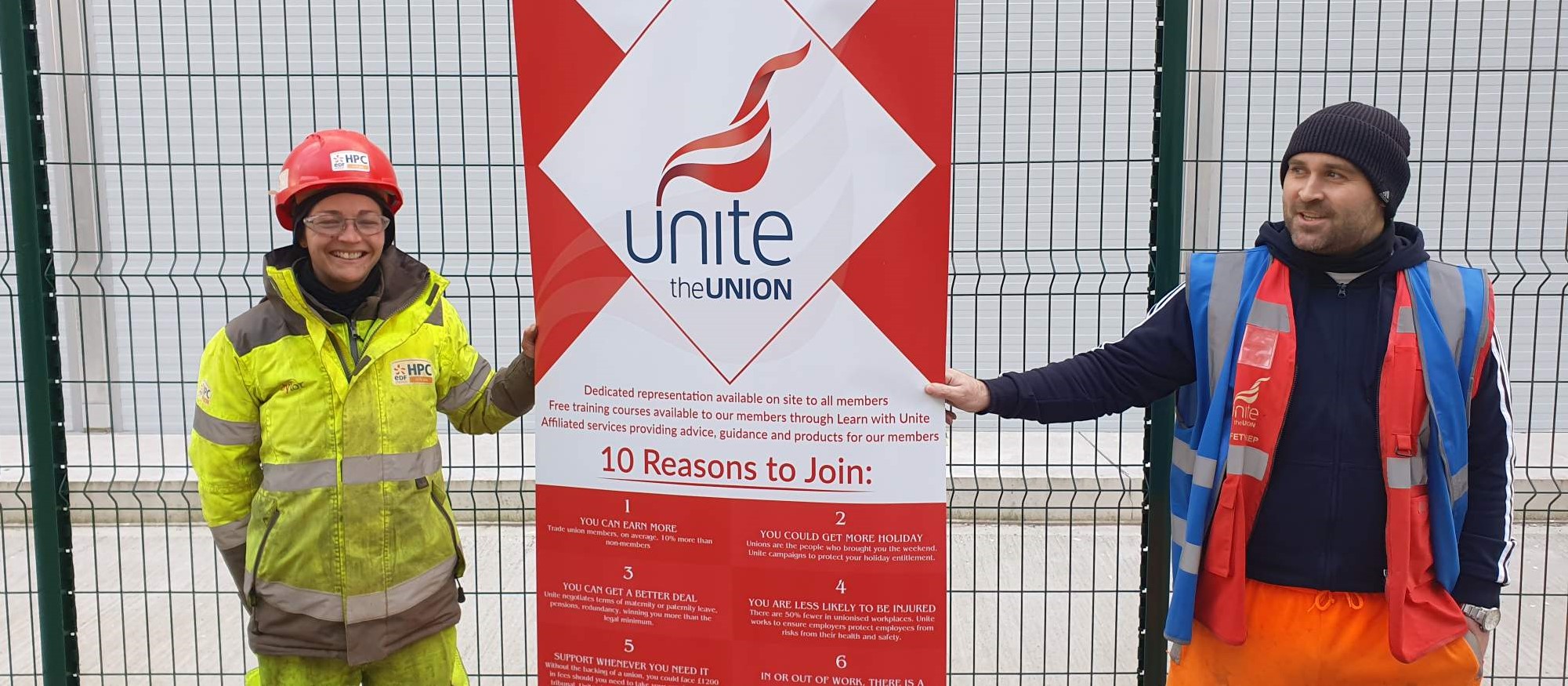A levy too far?
Unite is hoping that government plans to create three million apprenticeships in the coming years will lead to a new generation of youngsters being told: You’re hired.
But the Chancellor’s seemingly bold move in his Spending Review has raised more questions than answers – from both sides of industry.
Companies are concerned about the planned levy of 0.5 per cent on payrolls to raise ÂŁ3bn a year to fund the new apprenticeships from April 2017.
And unions, including Unite, fear the system will be too complex, will exclude unions as well as smaller firms – once the bedrock of training for school-leavers – and won’t offer enough quality placements.
National officers, dealing with different sectors of industry, have witnessed first-hand the dramatic decline in apprenticeships over the years.
Roger Maddison has seen the brighter side in the automotive industry, with successful companies like Jaguar Land Rover taking on hundreds of youngsters and preparing them for good careers in manufacturing.
“The problem is that companies have not been taking on apprentices for over 20 years, so there is now a big gap,” he told uniteWORKS.
“We have always encouraged companies to take on apprentices, and it used to be the norm even in firms employing 40 or 50 workers. That stopped happening, which is so short sighted.”
Assistant general secretary Gail Cartmail said the ambitious scale of the govern-ment’s pledge to create three million apprenticeships in the lifetime of this parliament has given rise to legitimate concerns regarding quality and funding.
“On funding, government is going ahead with an employer’s levy although we still do not know the detail of how this will work. Unite believes a few ground rules should include that revenue raised by the levy must be ring-fenced and that industrial sectors should have the whip hand to determine standards and governance.
“Of prime importance is quality, which if the UK were to follow Germany’s highly successful apprenticeship model would determine three years as the foundation for all apprenticeships.
“Of course integral to Germany’s psyche is that social dialogue is hard wired meaning unions are respected as equal partners, alongside business, educators and government departments.
“It remains to be seen if the new body set up to oversee the apprentice levy will include our union voice.”
‘Payroll tax’
Business groups have described the levy as a new â€payroll tax’, warning it would be a big cost for many companies, including medium-sized firms.
Only businesses with a wage bill of more than ÂŁ3m will pay the levy, which the government said would exempt 98 per cent of employers.
Doubts are already being raised about whether the new levy will help tackle the UK’s skills crisis, with a recent survey revealing that a third of small construction firms are being put off from taking on apprentices because of the bureaucracy involved.
Richard Clarke, Unite’s researcher on apprentices for construction trades, said the union is a strong supporter of quality apprenticeships, regardless of who is in government.
“Having a proper, three year apprenticeship and coming out with a proper qualification can set people up for the rest of their working life,” he said.
But one of the many problems facing youngsters in recent years has been the growth in shorter training programmes, with a certificate at the end which does little to help them find a decent job.
“It’s like selling people a pipe dream,” said Richard. “It has to be about quality, with real opportunities which lead to real jobs.”
Richard says Unite is concerned about the skills â€cliff edge’, with crumbling infrastructure and endemic youth unemployment, with industry struggling to meet future demand, posing a huge threat to the economy.
The models encouraged by Unite include four year apprenticeships for electricians, or three years for engineers, rather than 12-month training programmes, with low pay, which show how quickly companies want their money back.
An independent body will monitor the new levy – a key demand from business groups – aimed at setting standards and ensuring quality.
Trade unions?
Board members will mainly be from employers, business leaders and their representatives. Which throws up another issue for Unite – the involvement of trade unions in drawing up and monitoring apprenticeship schemes.
Assistant general secretary Tony Burke isn’t confident that the government will involve unions, given its drive to â€reform’ the way unions operate through its controversial trade union Bill.
“No one knows how the new levy will work – it looks like it’s been drawn up on the back of a fag packet.
“Governments have tinkered with the apprenticeship system, and despite the announcement of three million new placements by 2020, no one is saying
if they are going to be quality apprenticeships, leading to real jobs, or just short term training with no real value at the end of it.”
Tony believes it is essential that unions are consulted, as they are in other countries such as Germany.
“The three million target is laudable, but we have to question if it is achievable, particularly when the government is pulling out of industrial partnerships.”
It may seem churlish to question a target of three million apprenticeships, but George Osborne’s announcement has led to a barrage of questions about whether quantity will be prioritised over quality, administrative burdens on companies, and any potential impact on wages and jobs.
Government adviser Professor Lady Alison Wolf has admitted harbouring serious doubts about the three million figure, telling the House of Lords social mobility committee that the target meant Whitehall officials would be “rushing around like a headless chicken” to achieve it.
Whether this particular chicken comes home to roost is yet to be seen, but Unite will be pressing hard to be at the head of the pecking order to help revive apprenticeships to their glory years.
This article first appeared in uniteWORKS, Winter 2016 edition. Unite members can sign up to receive the union’s award winning mag by changing your membership details here to include receiving the mag.
 Like
Like Follow
Follow


